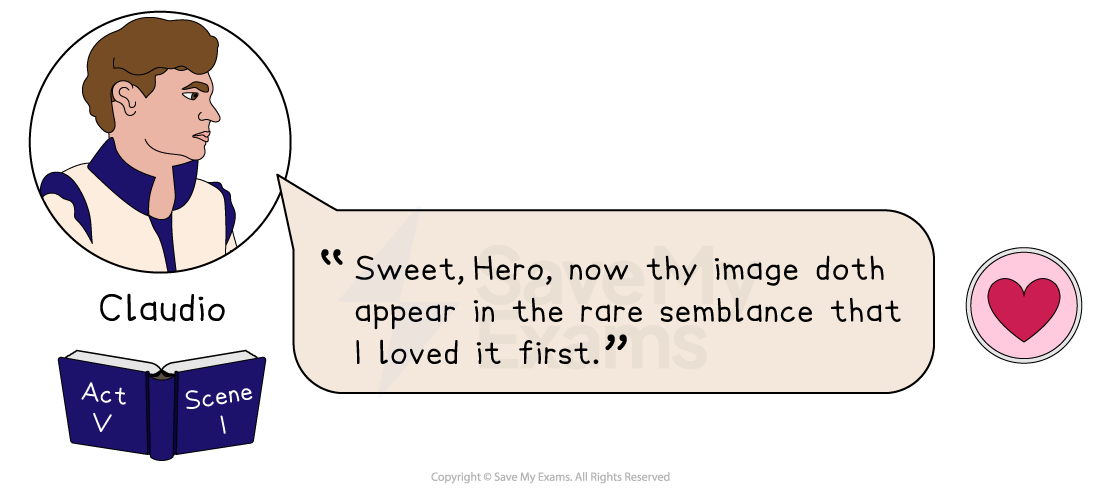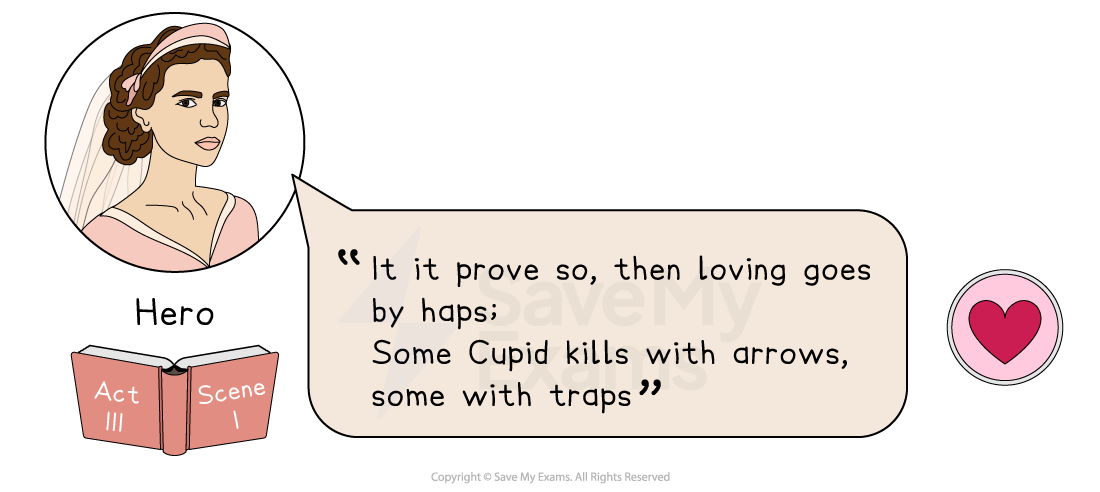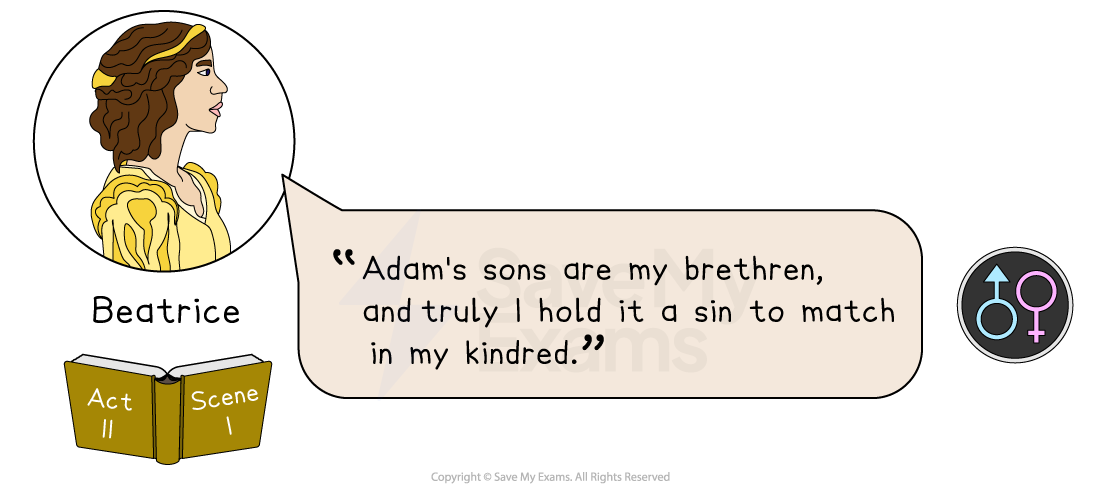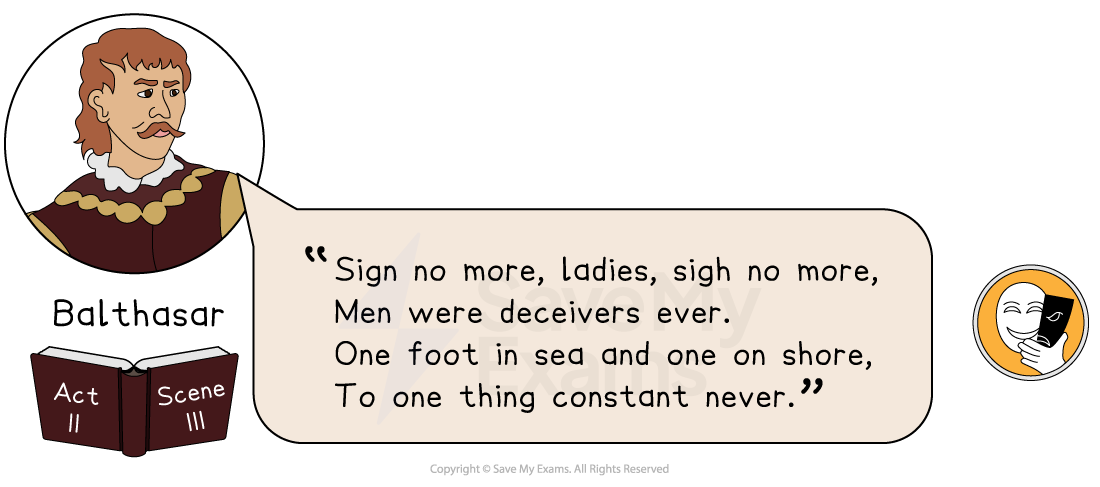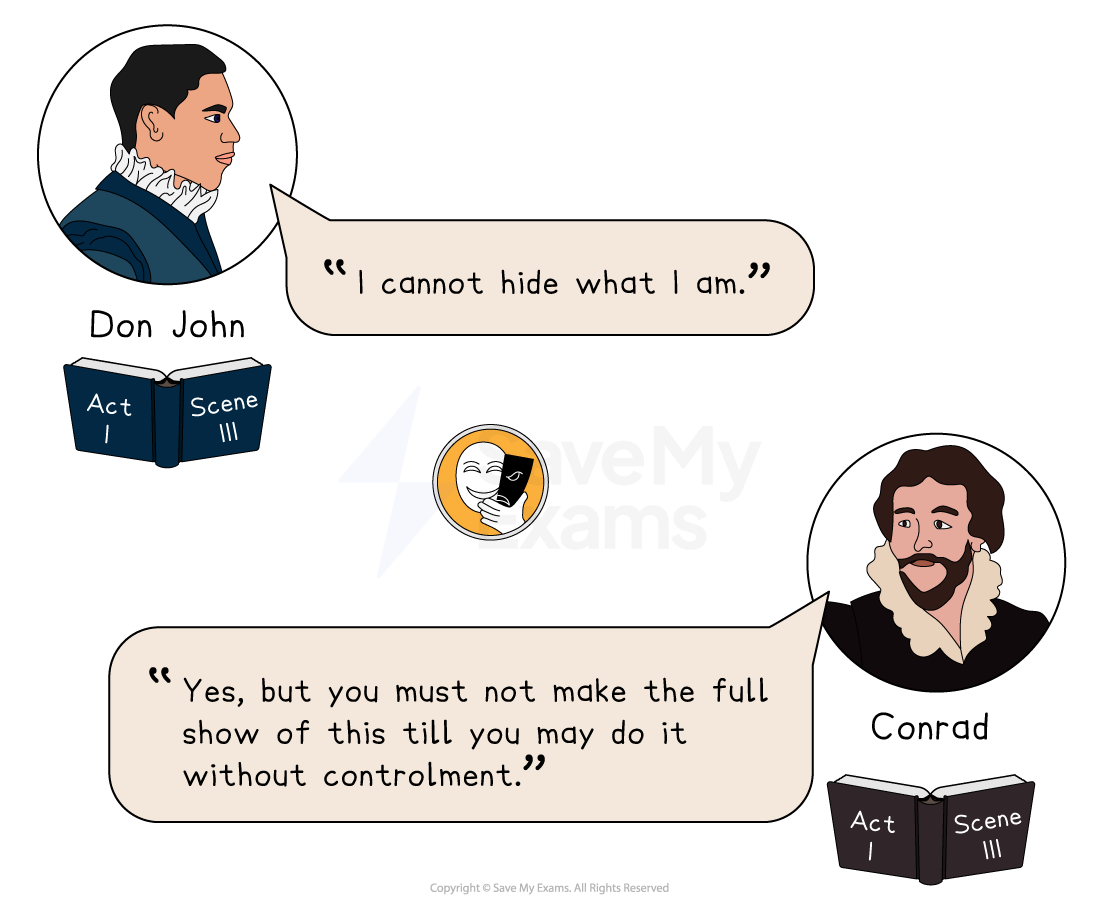Key Quotations
Remember, the assessment objectives explicitly state that you should be able to “use textual references, including quotations”. This means summarising, paraphrasing, referencing single words and referencing plot events are all as valid as direct quotations in demonstrating that you understand the text. It is important to remember that you can evidence your knowledge of the text in these two equally valid ways: both through references to it and direct quotations from it.
Overall, you should aim to secure a strong knowledge of the text, rather than rehearsed quotations, as this will enable you to respond to the question. It is the quality of your knowledge of the text which will enable you to select references effectively.
Exam Tip
Examiners credit when students link ideas and themes in the given extract to the rest of the play. A fantastic way to do this is to include quotations, or close references to the text, from elsewhere in Much Ado About Nothing that show a connection, contrast or character development.
If you are going to revise quotations, the best way is to group them by character or theme. Below you will find definitions and analysis of the best quotations, arranged by the following themes:


